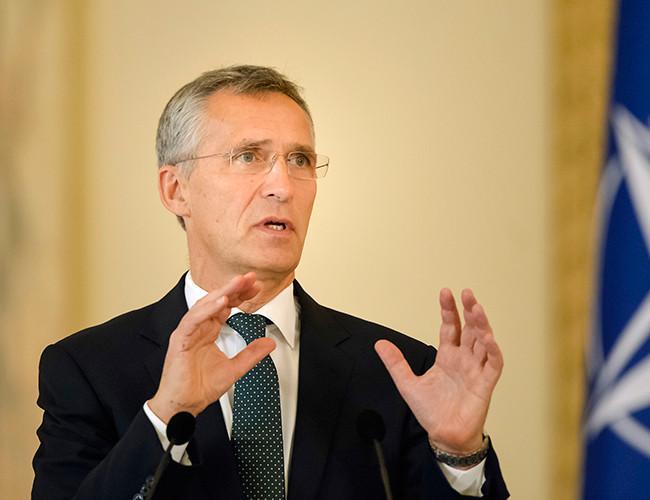
NATO ally Turkey is not seeking to antagonize the U.S.-led alliance by purchasing Russian S-400 surface-to-air missiles and is in talks with France and Italy to buy similar weapons, NATO Secretary-General Jens Stoltenberg said in an interview with Reuters.
Ankara’s decision to buy the Russian system has been seen in some Western capitals as a snub to the alliance, given tensions with Moscow over Ukraine and Syria, while the deal raised concern because the weapons cannot be integrated into NATO defenses.
But Stoltenberg said it was a sovereign decision and that he had talked it through with Turkish President Recep Tayyip Erdoğan.
“There hasn’t been any request from Turkey to integrate the S-400 into NATO air defense system,” Stoltenberg told Reuters on a Belgian military plane returning from Romania late on Oct. 9.
“I spoke with President Erdoğan when I met him in September. I said that the kind of capabilities different nations want to acquire is a national decision,” he said of the S-400 system that Turkey has made an advance payment for and hopes to see delivered in 2019.
Stoltenberg stressed that top Turkish officials, as well as Erdoğan, had told him Ankara remained a strong NATO ally.
He said Ankara was ready to brief its allies in the U.S.-led 29-member bloc on the reasons behind its decision to buy the S-400 system.
Erdoğan has blamed NATO countries for failing to propose a viable alternative to the long-range Russian missiles, but Stoltenberg said Erdoğan was now talking to Paris and Rome for similar systems, a move the alliance chief welcomed.
“He told me that Turkey is in dialogue with France and Italy on possible delivery of air defense systems from them ... on top of the S-400,” Stoltenberg said.
Stoltenberg did not give more details but said Turkey was familiar with the so-called SAMP-T missiles developed because Italy had stationed them in Turkey as part of NATO efforts to help protect Ankara from rocket attacks.
Such weapons are designed to protect battlefields and strategic sites such as airports and sea ports against airborne threats, including cruise missiles and aircraft.
The SAMP-T system is produced by Italian-French consortium Eurosam, a joint venture between European missile maker MBDA and Thales. Russia uses different technology, as well as know-how that Moscow is unlikely to be willing to share experts say.
Interoperability ‘key’ for NATO
“For NATO, the important thing is interoperability,” Stoltenberg said, speaking on his return from the launch of a NATO force aimed at deterring Russia in the Black Sea region.
“We encourage, facilitate allies to develop systems, acquire and operate systems together that will reduce costs and strengthen the defense industries within the alliance,” he said.
Meanwhile, Turkey and Russia have agreed “in principle” on joint production of S-400 anti-ballistic missiles in the short and medium term, Foreign Minister Mevlüt Çavuşoğlu has said, denying that Moscow has refused the transfer of technology to Turkey.
“We have not officially received anything negative on this. [Russian President Vladimir] Putin himself has told us that we can take joint steps for joint production. So the technology will be upgraded as well … And if Russians do not look positive at this then we’ll make the agreement with another country,” Çavuşoğlu told daily Akşam on Oct. 9.
“The agreement we have reached at the moment is about purchase,” he added, stressing that Turkey urgently needs the systems for defense of the country’s airspace.
“We wish we could find the opportunity for protection of our entire airspace, with our NATO allies,” Çavuşoğlu said.